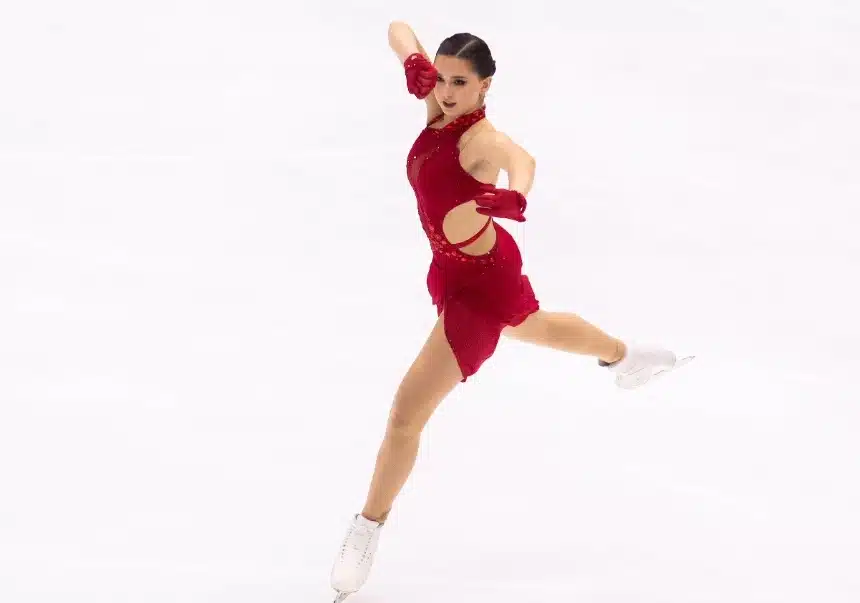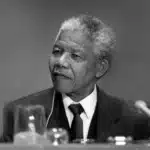Few stories in the world of competitive sports have captured the intersection of talent, controversy, and national identity as vividly as that of Kamila Valieva. Two years ago, the revelation of a doping scandal involving this prodigious figure skater sent ripples through the international sports community, casting a long shadow over her remarkable achievements.
Yet, in her homeland of Russia, the narrative took an unexpected turn. Rather than diminishing her stature, the controversy elevated Valieva to the status of a patriotic icon, a symbol of resilience in the face of international scrutiny and a beacon of national pride amidst geopolitical tensions.
In the context of the Russian war in Ukraine, Valieva emerged as a symbol of nationalistic defiance against perceived Western attempts to diminish Russian achievements.
This paradoxical outcome underscores a complex reality in the realm of elite sports: the pursuit of excellence, often at the expense of the athletes’ well-being, is intricately linked to national prestige and political power. As Valieva’s story unfolded, it became a lens through which to examine the broader implications of such pursuits. It raises poignant questions about the pressures young athletes face in the global arena, where their personal triumphs and tribulations are inseparable from their countries’ reputations and ambitions.
The case of Kamila Valieva thus reflects the intricate relationship between sport, politics, and national identity, weaving together themes of national pride, political narratives, and the global perception of power.
Russia’s Quadruple Revolution
Kamila Valieva, born in 2006 in Kazan, Russia, began this decade as a pivotal figure in reshaping women’s figure skating. She has shattered nine world records and became the European champion at the mere age of 15, thanks to her exceptional mastery of both the artistry and technical elements of the sport.
In 2024, a panel concluded Valieva had breached anti-doping regulations, imposing a four-year suspension.
Valieva, alongside her teammates Alexandra Trusova and Anna Shcherbakova, has been instrumental in igniting “The Quad Revolution” by successfully incorporating quadruple jumps into their routines from 2018 onwards.
A quadruple jump, or “quad,” challenges the skater to execute four rotations in the air in less than a second before landing on one foot. This feat, long considered unattainable for women, has provided several Russian skaters with a significant advantage in their scores, leading to a near monopoly on international podiums. This shift has marked the dawn of an era that favors athletic prowess over expressive performance.
Tyrannical Methods to the Top
All three skaters share two notable characteristics: their remarkable youth and their training under Russia’s most celebrated figure skating coach, Eteri Tutberidze. Tutberidze, renowned for producing several Olympic medalists over the past decade, has seen her protégées dominate the sport for a few seasons at a time, becoming national phenomena adored by millions.
Yet, Tutberidze’s coaching methods have sparked considerable controversy for their unsustainable approach. Reports of verbal abuse and grueling training sessions lasting up to 12 hours a day have surfaced, alongside strict dietary restrictions to maintain the lean physique necessary for executing quadruple jumps. Athletes have confessed to skipping meals out of fear of gaining even 100 grams, being deprived of water before competitions, and suffering from eating disorders.
Furthermore, Tutberidze’s rigorous regime appears to be tailored exclusively for teenagers, particularly those who can postpone puberty and avoid injuries. It’s a common trajectory for Tutberidze’s protégées to peak around the age of 16 and retire by 18 due to chronic injuries—a stark contrast to practices in other countries. As soon as one star skater reaches what’s seen as her “expiration date,” Tutberidze and her team have already prepared a younger successor to step into the spotlight. This cycle is indicative of a state-sponsored sports system that prioritizes medal acquisition over the health and well-being of its athletes.
The 2022 Olympic Disaster
In the lead-up to the 2022 Beijing Winter Olympics, the international achievements of Tutberidze’s skaters set high expectations, with many anticipating a Russian sweep of the podium. Kamila Valieva, in particular, was the favorite to win gold. Consequently, she was selected to participate in the team event, a competition that includes a male skater, an ice dance duo, a pairs team, and a female skater from the same country, propelling Team Russia to the top spot.
International competitions can serve as arenas for geopolitical tensions and cultural clashes.
However, the triumph was soon overshadowed by controversy. Valieva’s drug test from December 2021 tested positive for trimetazidine, a heart medication prohibited in sports due to its endurance-enhancing effects. Russian athletes have been embroiled in doping scandals before, with the country facing bans from competing under its flag in the Olympics in both 2018 and 2021 due to numerous doping violations.
Given Valieva’s age—only 15 at the time—the International Olympic Committee permitted her to continue competing in the individual events but decided to postpone the medal ceremony for the team event pending the outcome of her case. The intense pressure and scrutiny from the media took a toll on Valieva, leading to atypical errors in her performance and resulting in a fourth-place finish, thus missing out on a medal in the individual category.
Valieva’s case remained unresolved for two years, during which no medals were awarded for the team event. It was not until 2024 that a panel concluded Valieva had breached anti-doping regulations, imposing a four-year suspension starting from December 2021, when the sample was collected. This ruling invalidated all her scores since then, including her contributions to the team event and her European Championship victory. In response, Russia announced its intention to challenge the decision before the Swiss Federal Tribunal.
A Nationalist Icon
In stark contrast to the international backlash in 2022, Russia’s response to Valieva was one of overwhelming support. Upon her return from Beijing, her image was celebrated across the nation, with crowds chanting her name, overshadowing even her teammate Shcherbakova, the actual Olympic gold medalist.
Valieva quickly ascended to the status of the most beloved athlete in Russia, receiving lavish praise from President Putin himself. He asserted that her performances elevated the sport to “the level of true art,” a feat he argued could not be achieved through any illicit means. Furthermore, during the “Games of Future,” Valieva was seen by Putin’s side during the national anthem, and he honored her with the Order of Friendship, a prestigious award recognizing individuals whose efforts significantly contribute to enhancing the relationship between the Russian Federation and its people.
Athletes can be politically utilized to advance national narratives.
Following the conflict in Ukraine, the international ban on Russian and Belarusian athletes carved out a space for Valieva to emerge as a symbol of nationalistic defiance against what was perceived as Western attempts to undermine Russian achievements. The Kremlin denounced the ban as discriminatory based on nationality, and one spokesperson labeled the 2024 verdict against Valieva as “politically motivated.”
Valieva’s situation has shone a light on the troubling consequences of valuing athletic success over ethical integrity, intertwined with Putin’s push for nationalist narratives.
Beyond the Ice: Intersections of Sport, Politics, and National Identity in Valieva’s Russia
The saga of Kamila Valieva underscores the intricate interplay between sports, politics, and nationalism, serving as a vivid illustration within the Russian context. Her rise to a nationalist icon amidst a doping scandal highlights the use of sports as a potent tool for fostering national pride and unity. This scenario showcases sports as a symbolic battleground for contesting and playing out nationalist narratives, emphasizing the complex role sports occupy in society.
The prioritization of athletic success over ethical integrity in Valieva’s case brings to light the troubling consequences of such a stance. The support she received from the Russian state, despite doping allegations, reflects a broader willingness to overlook ethical breaches for the sake of national prestige. This raises significant concerns about the values promoted within the competitive sports sphere and the messages conveyed to young athletes.
Valieva’s portrayal as a victim of Western bias and her role as a symbol of defiance against international sanctions demonstrate how athletes can be politically utilized to advance national narratives and counter external criticisms. This highlights the strategic employment of sports figures within political discourse, pointing to the political use of athletes as tools for narrative and counter-narrative strategies.
Furthermore, her story brings to the forefront the critical need for protections for young athletes from the pressures of international competition and the pursuit of excellence at all costs. The controversial coaching practices and the immense pressure faced by athletes like Valieva underscore the importance of ensuring the well-being and ethical treatment of young sports talents.
Lastly, the global implications of sports politics are reflected in Valieva’s narrative, where international competitions become arenas for geopolitical tensions and cultural clashes. The international response to her case and the subsequent reactions within Russia reveal the complex interdependencies between sports, national identity, and global diplomacy, offering insights into the powerful role sports can play in shaping national narratives and influencing international perceptions.
Through Valieva’s experiences, the complex relationship between sports, politics, and nationalism in Russia is brought into sharp focus, highlighting the significant, multifaceted impact sports can have on society, national identity, and international relations.









